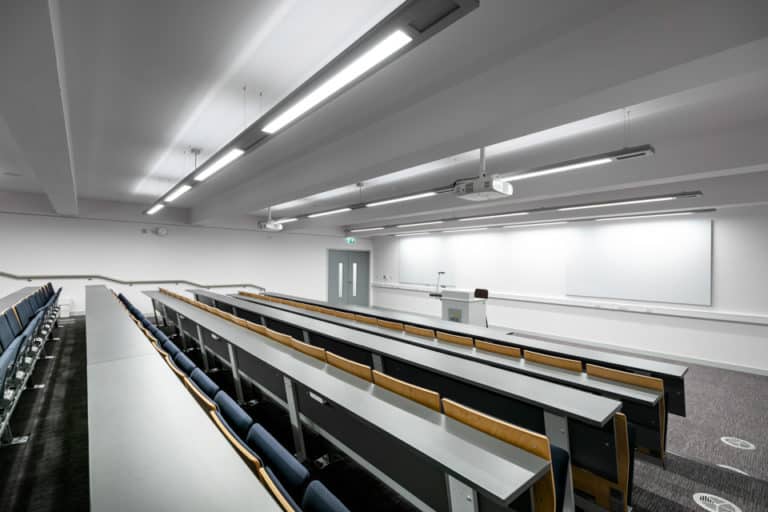Whether it’s your first or fifty-first time organising a conference, a checklist is always a good idea. With many balls in the air at the same time, it’s so easy to forget something minor which will cause a major panic closer to the event. Conference planning checklists change depending on your events needs and purpose, but a general checklist is a good place to start.
If you need help planning your event in DCU conference venue in Dublin, our experienced team are here to help. We might even think of something you hadn’t considered! Our conference spaces range in size accommodating everything from intimate meetings to large-scale events. Contact us for more information on holding your event in our Dublin conference venue.
Establish your goals
Defining your event will make it easier to establish goals and purposes. Is your conference for established professionals or to educate novices? How many people do you want to attend in person? Is it educational or do you want to make a profit? Brainstorm with your team about the concept before you start to plan.
Set a Budget
Setting a budget is important to your event, especially if you are self-funded or want to turn a profit. You’ll need to see how much money you need to raise to cover the cost of the event then set ticket prices accordingly to cover that cost. Find out where you can get sponsorship from and make use of local grants. You’ll need to keep a buffer of around 10% over budget in your funds for last-minute changes or additions.
Find the Right Location
Choosing the right location, that’s convenient to get to by public transport, provides parking and is accessible will have a big bearing on the success of your event. Remember you might be limited by the size and capacity of venues in your chosen location so do some research. Consider alternative locations like college campuses over traditional venues like hotel function rooms for better value for money. A conference venue in Dublin that has great value accommodation is always a plus.
Time it Well
If you’ve decided on a location for your event, check the dates do not clash with events in the area. For example, are there any big conferences, concerts, sports matches, or anything else that might make it more expensive and awkward for your guests to get to? Re your start and finish times in the middle of rush hour? You might want to consider traffic and transport options too.
Invite your Speakers
After brainstorming with your planning team, you can start to establish a list of speakers, exhibitors, and guests you’d like to join your conference. Invite them in plenty of time because the best speakers book up months, maybe a year in advance! Ensure your speakers are knowledgeable and relevant and add some depth and context to your event.
Market your event
Marketing and ticket sales are the key to a successful event. Whether you’re pushing to an invite-only crowd or open to the public, people can’t buy tickets if they don’t know what’s on. Engage with a professional marketing team or use social media ads to let people know where you are and when it’s happening. Monitor ticket sales and adjust your marketing tactics accordingly.
Arrange Catering
If you’re planning catering for the event, you’ll need to organise this with the venue or third party in plenty of time. Decide whether you want to provide light refreshments or a full meal or something in between. If you choose DCU as your conference venue, we can provide a range of catering options to suit all budgets.
Review Past Events
If you’re an old hand at event organisation, you’ll know the value of learning from the past. Review similar events and the feedback you got from attendees to see the pitfalls and how to avoid them. If this is your first conference, trust your conference organiser to give you tips and advice. They’re the professionals!
Visit your Venue
You can read and look at pictures on the event venue website, but it won’t give you an idea of the real feel of the venue. If possible, we recommend attending in person or nominating someone local to report back if you’re overseas. You can check the layout of seats, get a feel for the area and offer advice on travel to your attendees once you’ve visited.
Relax and Enjoy!
Once the day has come, there is little you can do at the last minute to change or improve. You’ve done the hard work for months in the run-up to the big day, now it’s time to relax and enjoy the conference as much as you can.
If you’re planning a Dublin conference, DCU has the perfect venue for you. We can help with every aspect of event planning from the initial meeting to the feedback from your guests once it’s over. Contact our experienced event planning team to learn more about our meeting and event venue in Dublin.





